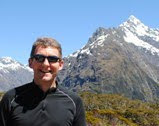
Recently, the tragic death of cyclist Rob Jeffries hit the local cycling community hard. And not just locally - Rob was very well known nationally. He had worked for British Cycling and had only left in February this year to pursue a career in Teaching. Rob’s role with BC involved training Officials and volunteers and through this he came into contact with a lot of people. The sentiments on various forums and message boards are very moving; it truly is a sad affair. The 18 year old lad who struck Rob from behind, (it is referred to as “a collision” in the local paper?) was arrested and later released. Emotions are raw, should we blame him? I want to but how can I? Was I a model driver at 18? I can tell you with some shame that I certainly was not. I never knocked any one down but I was lucky. So I cannot blame him. He will have to live with the events of that fateful evening. I hope he is remorseful. I hope he thinks deeply about what happened. I hope one day he rides a bike - he might. I hope he experiences the fun, enjoyment and pain that two wheels can bring. No matter how far into the future this happens then at least some good will have come from this devastation.
Earlier in the race season, I spent the day at the Swashbuckler Triathlon, over in Hampshire. Well it started at 05.15am so it was more like the night shift. Enjoyed myself, some impressive performances and some not so. Good fun though and it did take me back to when I used to jump into rivers at some unearthly hour. I have been to a lot of races lately, I am not a very good spectator so have been taking a few photographs. Now, I am no photographer so I take a lot of pictures and in amongst the rubbish I get a few good shots. I am trying to capture the event, sometimes I think I get it but most often not quite. I put the good ones on my regular blog page – if you’d like to take a look here.
I have decided to have a year off racing. My involvement with the GB Para-Cycling squad means I am away a fair bit so I do not feel I can do myself justice, yes I know, it’s an excuse. I need to keep fit though, I do train hard, always have done, but without the commitment of a race at the weekend it is easy to miss a session. Entering a race always was the best motivation, I thought. So I have ridden a couple of club 10s, but that just seems to highlight the lack of training, reminding me I need to do more. But hold on, I am supposed to be having a year off, so no need to worry…. but what about keeping fit?……I seem to be going round in circles here, so why don’t I just ride the bike - which is kind of the same thing.
At a recent committee meeting of our cycling club we were discussing, why, as a club we seem to be failing? I am sure all clubs, be they, cycling, fishing, triathlon, sowing circles, are struggling. Perhaps the days of the traditional club are over? People lead busy lives and do not seem to be able to commit to club runs, races or marshalling etc. They want to do their own thing. Cycling is on the increase we are told. Participation is growing! I am not sure that is reflected in racing - numbers are down for most local club time trials, the simplest form of racing. I see plenty of people out on bikes so I am sure more people are riding but its not racing that drives them, it seems to be sportifs. They have become very popular, with huge numbers riding more and more events. I am sure some of the people riding these sportifs will have a go at racing. Whenever cyclists ride together competition is not far from the surface. Perhaps modern living provides enough challenges throughout the working week, without the added pressure of racing at the weekends. Riding a sportif on a Sunday with your mates is a great way to relax, no pre-race nerves, no need to suffer if you do not want to, just good fun on the bike, with no results to confirm how good or bad you were. It must be a great way to de-stress, leaving you refreshed and ready to face the coming week.
Take care out there, see you up the road!!






